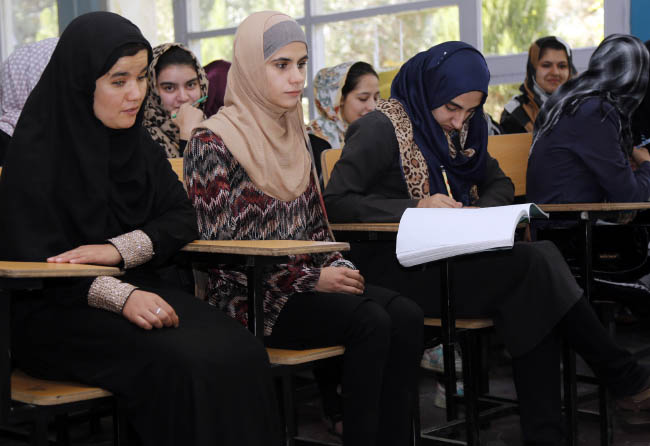In modern age, the world seeks to consider the role of education, particularly higher education, in national development and educational progress. The paramount role of higher education in a country’s development is inevitable. Taking the status quo into account, it must be pointed out that universities are one of the highly significant resources in human societies. Resolving issues and determining macro strategies at national level are done by universities and the knowledgeable in both developed and developing countries. In the countries where higher education is taught in new methods, progress will take place more swiftly.
Kabul University was established in the solar year of 1311 with the aim of empowering human resources in accordance with the country’s need and pave the ground for national development. Currently, a number of more institutes of higher education are operating, along with Kabul University. The question is that what role will be played by institutes of higher education in terms of national development and what are the achievements of Kabul University in this regard?
Creative manpower is believed to be the most deciding factor behind a society’s development and progress which is different from one community to another. That is to say, a country’s supremacy depends more on its technological advancement – which is the product of educational development and relates to a country’s system of higher education – rather than natural resources or industrial capacities. So, considering the importance of higher education in national development, the relation between higher education and elements of national progress will be analyzed shortly.
Higher Education and Economic Development
The system of higher education and universities are effective in economic development from two perspectives: First, providing efficient manpower or increasing efficiency. Second, extending the realm of knowledge, skill, and technological advancement. Since universities are supposed to shoulder the responsibilities of nurturing manpower and increasing efficiency at higher level, they play a pivotal role in economic development. On the other hand, since expanding university knowledge is in need of financial resources – which are the product of economic development – this is one of the challenges before development in the country. In short, economic development and educational extension are interlinked but both are at a low level in Afghanistan.
Higher Education and Development of Human Asset
It is stated with full certainty that expert and skilled human resources are the mainstay of social and economic development. Indeed, expert manpower is the real factor behind evolution and progress. Discerning the law ruling on the pheromone of a society or nature will smooth the path for evolution. Talented individuals will promote the capacity of a society in resolving social and economic issues and catalyze its progress. Such individuals will be trained under the organized teaching of modern science. But our universities do not only lack modern science but the system of higher education will also fail to move continuously.
Higher Education and Social Development
Social development is a process that updates social structure and creates new institutions which will cause stronger solidarity within a society. Subsequently, universities as a formal system in higher education of the country, will change the minds and mentalities of individuals. Those mentalities will shape the public social and political characteristics and build the future of people. Lacking great and successful ideologues, the institutes of higher education could not bring about social development. So, Afghanistan was left at the mercy of imported ideas and thoughts impeding its progress.
Higher education and cultural development
The extension and fruition of ruling culture will be one of the important aspects of national development. According to some economists, development in economic aspect is strongly influenced by cultural beliefs. Cultural development is defined as promoting capacity and creativity in the values and behaviors applied in the daily life of mankind. To reach this pinnacle, teaching texts at higher level should contain creative messages. Some thinkers believe that generating creativity and changing the minds of the public are the responsibilities of universities and institutes of higher education. The post-Taliban Afghanistan was not successful in this case, either.
Higher Education and Political Development
Political development is defined as institutionalization of politics in the society. There are links between political and educational systems in many countries but with differences. The relation between the systems of higher education and politics seems to be dialectic since this relation can be both supported and criticized; otherwise, political development will not occur in a society. In fact, higher education will play a crucial role in the elements of political development namely nation, state, and civil society and can facilitate access to a sustainable political development in the society. In Afghanistan, however, the relation between the system of higher education and government is really weak. Hence, there is no political development.
Home » Opinion » Higher Education and National Development
Higher Education and National Development
| Mustafa Ahmadi

